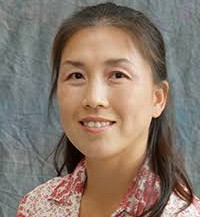
Hea-Jin Lee, Ph.D.
Dr. Hea-jin Lee and her colleague, Dr. Leah Herner-Patnode, co-teach an Early Childhood Education and Middle Childhood Education reflective seminar on the Lima campus.
They chose to redesign instruction of the course for three reasons:
- Students were not seeing the relationship between theory and practice.
- Students exhibited minimum effort for previous course content and assignments.
- EDUTL 5195 SEI scores were lower than other courses’ SEI scores.
“We were not happy with how effective the course was and the students perceived this course to be for future practice,” Lee and Herner-Patnode explained. “After reviewing SEIs, measuring self-efficacy beliefs, and gathering anecdotal data, we identified student engagement as our biggest problem and contributing factors. Our journey began by meeting with UITL consultants in May 2019. … We met with resource people and read relevant research not only during the planning and development phases but also continued throughout the course redesigning process. We then applied all of these items to redesigning the course.”
Ultimately, they adopted a hybrid flipped model, and the structure of the course cycled three components for each module: (1) Learning from research through self-paced research, (2) Learning from practitioners in a face-to-face meeting with guest speakers, and (3) Learning from peers through small group zoom meetings. Students’ course evaluation, participation, and performance were improved compared to previous years.

“The IR redesign process was a valuable exercise in numerous ways,” they noted. “As teacher educators, we view reflection of best practice as one of our top priorities. To push ourselves to evaluate our own course effectiveness is paramount if we wish to remain effective as instructors. We must also model what it means to be a good teacher. We discussed the course design (with our students) and welcomed constructive feedback.”
For additional information about the partnership, review the IR portfolio.
